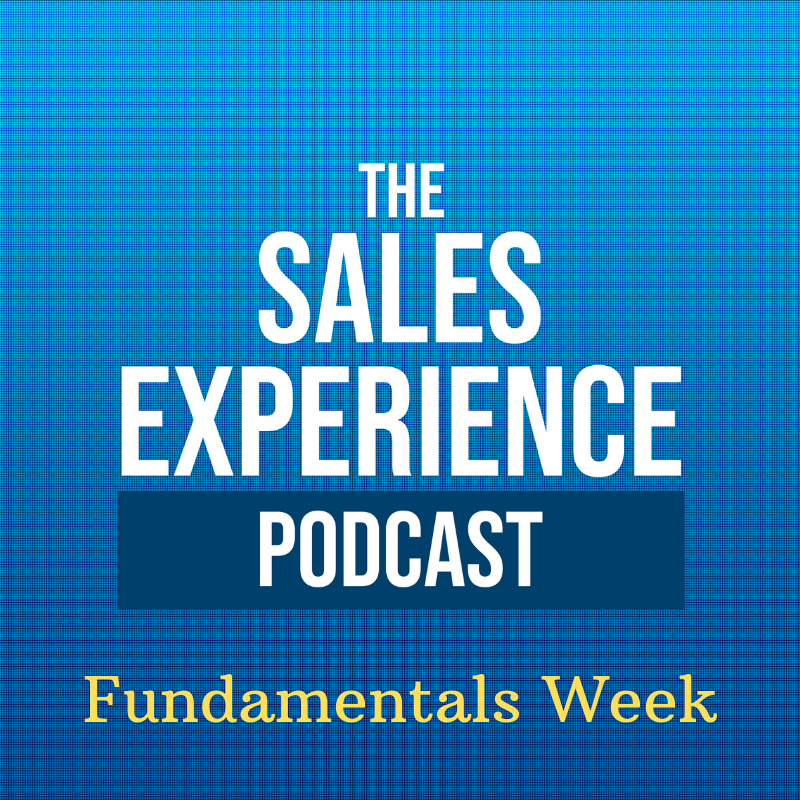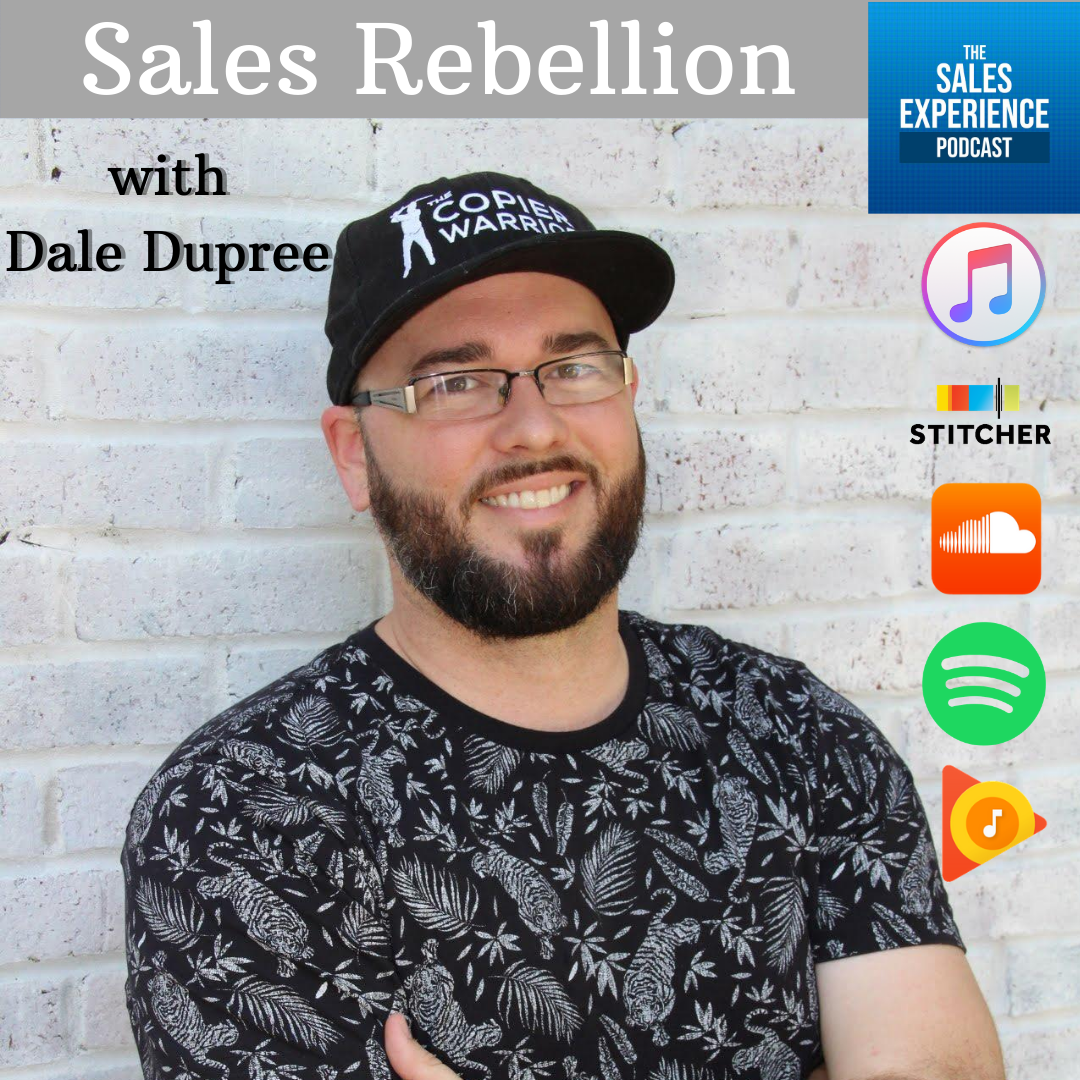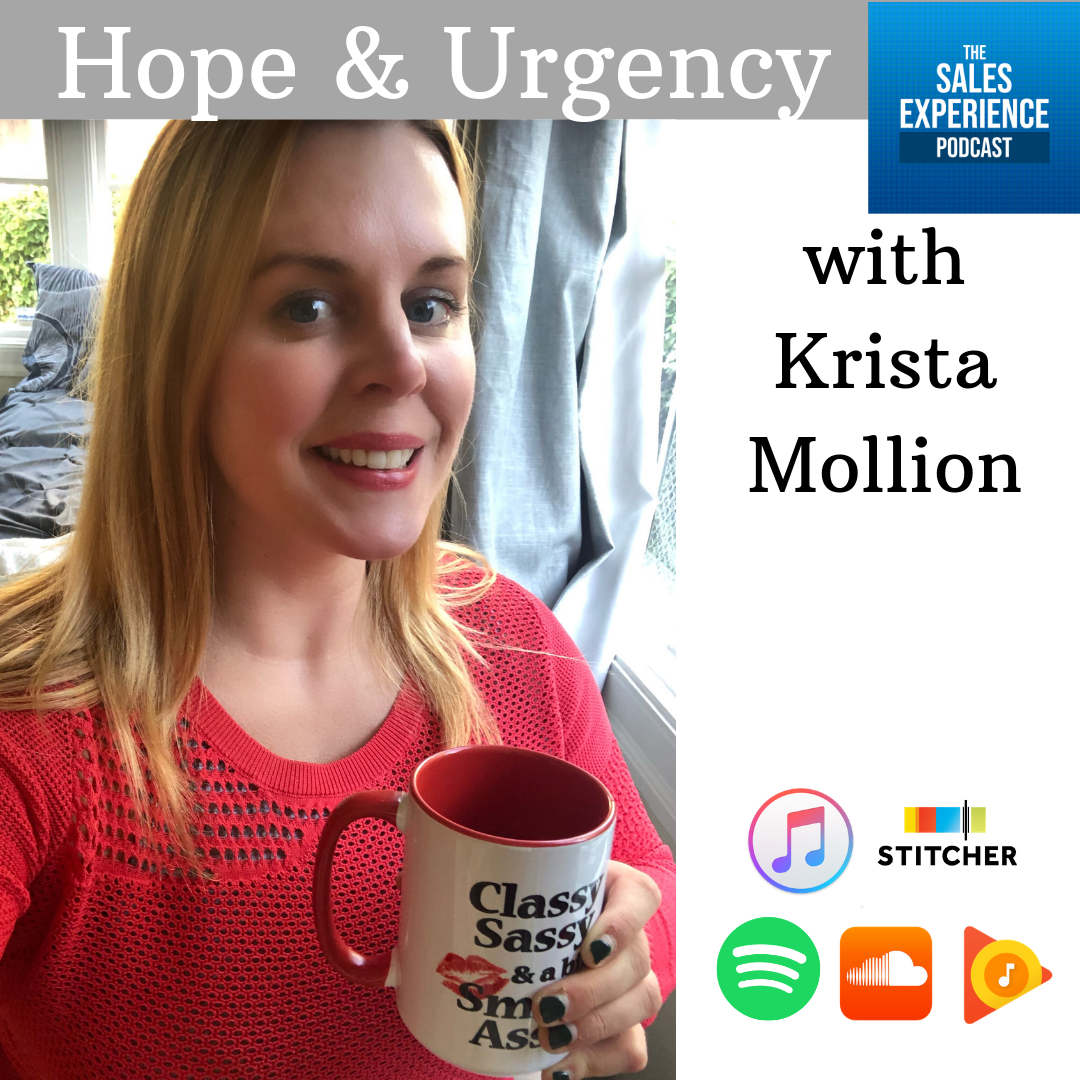Show Notes
Part 3 of Adam Honig, from Spiro.ai making his case for the death of the CRM.
This should make most sales reps and managers happy, as the CRM can be the bane of their existence.
Some gems…
“I fundamentally believe sales is all about helping people”
“like the saying goes like the worst kind of a lie you tell is the one to yourself.”
Download The Power of Authentic Persuasion ebook
Enroll in the Authentic Persuasion Online Course
Get help with your sales team
Connect with Jason on LinkedIn
Connect with Adam on Linkedin
Adam’s Bio:
Adam is passionate about helping companies make more money using artificial intelligence, and is the driving force behind Spiro’s pioneering new approach: proactive relationship management. As CEO, he is focused on the company’s overall market strategy and vision.
Previously, Adam co-founded a software company which he led through its successful IPO and sale. Afterwards, he founded Innoveer, one of the largest CRM consulting firms, which was successfully acquired by Cloud Sherpas (and then Accenture).
Where to follow Adam:
https://www.linkedin.com/in/adamhonig/
Links:
https://spiro.ai/resources/guide/infographic-not-your-fathers-crm/
https://spiro.ai/resources/guide/proactive-relationship-management/
E214 – Transcript
Jason: Alright. Welcome to part three of my conversation with Adam Honig. We’re going to continue where we left off in part two if you didn’t catch it and make sure to download and listen to part one and two as we’re going to continue this conversation. But here it is part three of my conversation with Adam.
Adam: I mean there’s some people who feel like taking their own notes helps engage their mind and thinking about it, but there’s other people who just want to be in the flow and working with it, you know? And, and so if the software can do that, great for you. You know, there are some people who are better at followup reminders than another, so the software can help you with that. You know? So there’s a lot of things just for the individual salesperson that this type of approach can help.
Jason: So just real quick, I guess kind of plug and or kind of explanation of Spiro and then I want to get into some sales related topics, but what have you guys done with that? Because I think this is, and again, not as a sales pitch for what you guys do, but also I think it’s really interesting for people to hear about it and see where the technology is going and what options are out there as everything’s evolving, right. I mean there’s phone systems and setups out there where literally like you’re saying, where it will take a call, transcribe it, use NLP and AI and behavioral conversation information and basically tell you how you scored, who’s talking and who talked the most on those calls. So I think all of that is fascinating for companies who want to evolve and be innovative. So a little bit about what Spiro does and how it works.
Adam: Yeah, so we have a product which we’ve cleverly named Spiro. We’re not very good at naming things it seems, but anyway, you know, we spend about four years building it. We’re in the market about a year, two years now, and we’ve got about 200 customers and it’s a replacement for CRM. So it’s for companies that want to get rid of CRM or don’t have CRM, but they need a sales platform to help make their sales teams more productive and also forecast and run the business. So CRM components are in it in terms of having a pipeline and a list of contacts if you want, or a list of deals that you’re working and stuff like that. But it literally works in the background to watch what the sales team is doing. It updates itself, it creates contacts, it adds deals, it listens to phone calls and transcribes them.
Adam: Everything we’ve been talking about, but it uses that data to make sure that the sales team is proactively following up on everything and not letting anything fall through the cracks. So if I have a conversation with you, it’ll remind me about the follow up. If I’ve got a proposal out to you, you know, it’ll automatically, you know, add that in so that I can put that into the forecast properly. And then for sales leaders, it pulls up all of that insight into a reporting environment so they can really know what’s going on and help coach and guide the team more effectively.
Jason: Got it. And the fundamental key is how that’s done automatically, right? Without the sales reps intervention for the most part.
Adam: Yeah. So I mean we connected directly to people’s emails. It comes with the voiceover IP dialing solution. So you’re literally, every call is going through Spiro and everything’s being transcribed and recorded for a lot of times we’re connecting Spiro to the company’s ERP systems or ordering systems or anything like that. So it’s able to pull all that data in. Then we have a machine learning model that sits underneath all of that, that’s constantly analyzing all of the data that it’s seeing from everywhere and pushing recommendations to people. It could be via email, it could be via SMS, it could be in the Spiro app and it says, okay, don’t forget to call Sally because you know she’s the next most important you need to talk to. And if you find that you’ve got an hour for either prospecting or following up on deals spirit, we’ll just give you one after the other, after the other, if the people that you need to reach out to to move stuff forward. So it’s sort of a no think environment. That’s part of what we’re doing.
Jason: So then let’s take that and kind of go into some of the stuff that I like to talk about in the show. And since you’ve done, you know, essentially CRM sales consulting and are running organizations for so long, this being the sales experience podcast, what do you think a great sales experience looks like for salespeople and for customers? Either what you’re doing at Spiro or what you’ve seen in the past or what you think, like what does that great sales experience look like?
Adam: Well you, you basically called me old just like a couple of minutes ago, but I am a big fan. You said he had all this experience, but uh, I’m a fan. I’m a big Zig Ziglar fan, and you know, I fundamentally believe sales is all about helping people and you know, I feel like the best salespeople, they’re there, they’re kind of like customer success people, but repurchase like they’re really out there to understand, give prospects and customers a chance to explain their problems and even help them think through the problems. Because a lot of times we have to really articulate, you know, what we’re trying to solve before we can figure out what it is in the nugget, you know? And so I think great sales people and a great sales experience is all about the kind of way that you’re learning throughout and you’re, you know, from the customer and they feel like they’re being helped through something and not really being pushed anything. That’s where I would start.
Jason: I think that’s a great point too because I’m really big on seeing that journey of a customer from the beginning all the way through. A lot of things focused on the customer experience, which is once they become a customer, customer service, fulfillment, processing, you know, retention, all of that. For me, it starts with marketing moves to sales. You’ve got to make sure it’s on the lineman, but I agree with you completely. I mean a great sales experience as somebody who understands that prospect and then sets them up properly as a customer, not just in order to get that commission of that sale today, but for that person to be wildly successful with the product or service as you know, a good fit.
Adam: Right. One of the thing I I always advocate for is surveying your prospects, you know, after the sale, how well did we do? Not from like a, I’m trying to re-engage you and sell you in a different way kind of thing, but just really like, Hey, you know what our job here is to help you. And I really, you know, answer one question, how well did we do in that process to give us feedback, you know, on how we’re doing that. And uh, I mean that’s not something that we do in the product or anything like that. It’s just sort of part of the process to really reinforce that behavior both for the sales team and then to figure out if you need to make any course corrections on it.
Jason: And what’s interesting for any owners or managers who are, or even sales reps listening to this is basically what Adam is saying is that you make the sale, someone you know, swipes their card or pays the invoices moving forward. You’re saying like at the end of that process now they’re a customer, the sale is done, survey them and see how the sales process went.
Adam: I’m actually saying survey the lost deals. I mean your, your customers. I mean for goodness sakes, I hope they’re going to say everything went well. You know, that would be terrible if they didn’t, you know, but you know, a lot of times the, the solution or the service that the salesperson is providing just isn’t the thing that they need and that’s no harm or foul on them, but they should still be, you know, a useful resource and helping out and stuff like that. Then that’ll turn into referrals or future business or anything like that. And I we, a lot of companies do customer surveys, but you know, I don’t find like a lot of people do prospect surveys.
Jason: Yeah. In my experience with that, whenever I brought that up, the companies or approach that with managers, owners or sales reps, the ones who know that they’re doing things the proper way, meaning using persuasion. So not just being an order taker where they just lay down to whatever deals, but you know, actually moving people forward, which takes persuasion but not manipulation. And if they’re actually selling something that has value, which hopefully most people are, then there shouldn’t be any resistance to surveying either knew we sold clients like the day they’re sold, like how was the buying experience or a, you know, what you’re saying is the last deals like the lost prospects. If you’re competent in what you do and you know that you’re one of the good guys’ air quotes, then that’s not an issue. The challenge is, and I see this when I bring this up to people and they’re like, Oh no, we would never do that. To me that’s a red flag. Like if you’re listening to this and you have that reaction to what Adam just said and you’re like, no, we would never want to do that. Like we don’t want to open up that Pandora’s box. Then you really want to take a serious assessment of your sales process and or your team.
Adam: Yeah, I mean it’s like the saying goes like the worst kind of a lie you tell is the one to yourself. It can be painful. And you know, we’ve sent out surveys and gotten some, you know, negative comments and stuff like that and you know, that’s, you know, that’s the only way you can really improve if you really know where you are.
Jason: Yeah. And I think that’s a huge one to survey those lost prospects and you’re right, I mean, no, just to get the feedback and see what happened. Because again, if you’re a true sales organization that’s doing some kind of consultative sale, right. So it’s not a one size fits all. It’s not an everybody wins, right? It’s not everyone gets a magazine subscription. Anyone who answers that door, I’m going to sell them a set of knives. It’s like I have a solution like yours, and even my business, right? It’s not a good fit for everybody. But if it is like you should do the deal and if it’s not, then it totally makes sense, right? Like I don’t support for most professional organizations, 100% close ratio because that means you’re pushing people through and that’s not effective and that’s not good and not sustainable. So you’re always going to have those people who aren’t a good fit. You want to know that you’re still on the right path. Your product is still Oh, affect source services, effective for most everyone or the people you want to target. But you also want to know those middle ones where maybe your rep said something wrong or marketing is not in alignment or your process is broken. You shouldn’t be afraid of that feedback.
Adam: Yeah. Otherwise, like I said, how can you fix it? So I think that’s really, it would be interesting if more companies did that for sure. And maybe that’s our next company, Jason. Maybe we’ll build a software platform for prospect, you know, survey.
Jason: Yeah. And I think that, I think you’re going to have, uh, the software is the easy part, the change management, like getting people to use the CRM. So getting owners and managers to be excited about serving their lost deals. Cause again, there’s those innovators, those are early adopters who would want to do that. And like I want to know. And then there’s those other people who are just like, no, I just put my head in the sand, you know, kind of like the CRM discussion and I’m making enough money. We’re doing well. The reps are closing enough deals. Like we don’t want to know. Right. I don’t care about they’re using the CRM. I don’t care about the prospects we lost. Just keep close with deals.
Adam: Yup. Yup. Well it’s a good point.
Jason: Well again. And CRM usage. You know, marketing. A lot of stuff I talk about in this show and a lot of stuff you probably dealt with over the years, you know, there’s times where the economy and the market is good and things are good and you don’t care cause it doesn’t matter. I don’t care if the reps are using the CRM. I don’t care what opportunities are out there. We’re making money, we’re closing. When the economy changes, when things go down, when there is a shift, and all of a sudden those opportunities in that tracking matter, then all of a sudden people will start to pay attention.
Jason: That’s it for part three. Again, make sure to subscribe. If you want to read the transcripts or check out Adam’s links before part four, make sure to go to cutterconsultinggroup.com/podcast find all the episodes, show notes, links, and transcripts there. As always, keep in mind everything in life is sales and people remember the experience you gave them.
![[E214] Proactive Relationship Management with Adam Honig – Part 3 of 4](https://episodes.castos.com/salesexperiencepodcast/images/TSEP-Adam-Honig-Cover-Image.png)


